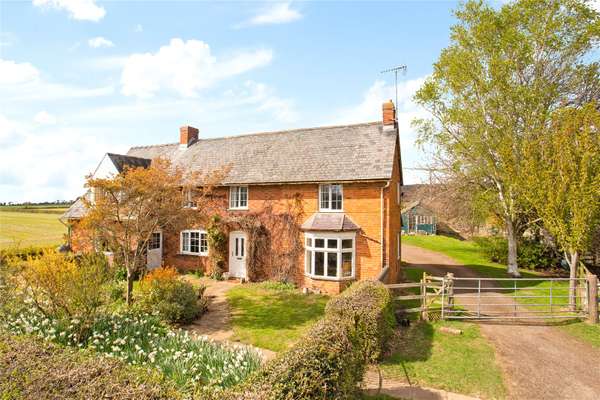House price growth in countryside towns is outperforming the national average, while coastal towns are failing to match the same pace, new market analysis from eXp UK has revealed.
eXp UK analysed house price changes across coastal and countryside hotspots over the past year to see which is most in favour with today’s buyers and how each compares to nationwide price growth over the same period of time.
Across all of the UK, the average house price has increased by 1.7% in the past year, rising from £282,777 to £287,546.
This is despite the past year bringing with it significant economic and market uncertainty which many commentators said would result in a slumping housing market.
Across the nation’s countryside towns, average price growth has been even stronger than the national average, rising by 1.8% to sit at £293,782.
Meanwhile, seaside towns are dwindling with annual price growth of just 0.7%.
Despite this, seaside towns still continue to command a price premium above and beyond much of the market, and this results in the current average price of £302,578 being higher than both the national average and the average in countryside towns – despite the latter’s strong performance over the past 12 months.
A town-by-town analysis reveals more about the difference between our coastal and countryside markets.
The highest seaside growth has been recorded in Tynemouth, North Tyneside, where prices are up 5.9%.
Meanwhile, the strongest countryside growth, recorded in Market Harborough, is 9.1%.
Furthermore, of the 20 seaside towns analysed, six have actually seen house prices drop in the past year, which is highly unusual for coastal locations that usually have such buoyant markets.
The most significant of these drops is recorded in Tenby, Pembrokeshire, where prices are down -6.1%.
Out in the countryside, on the other hand, only two locations have seen a drop in prices, with Tetbury, Cotswold falling by -2%, and Dumfries, Scotland, falling by -3.3%.
Adam Day, head of eXp UK, said: “Our finest seaside towns have always benefited from strong and steady buyer demand which, when combined with a finite number of properties and limited development opportunities due to geographical limitations, results in reliably high prices.
“These high prices often put coastal towns out of many buyers’ reach, and it seems that the recent cost of living and mortgage crisis has worked to exacerbate this fact.
“Perhaps that’s why we’re seeing countryside locales outperform the coast on price growth – buyers who are being priced out of the seaside are diverting their search to nearby countryside spots and those towns are now reading the benefits.”




